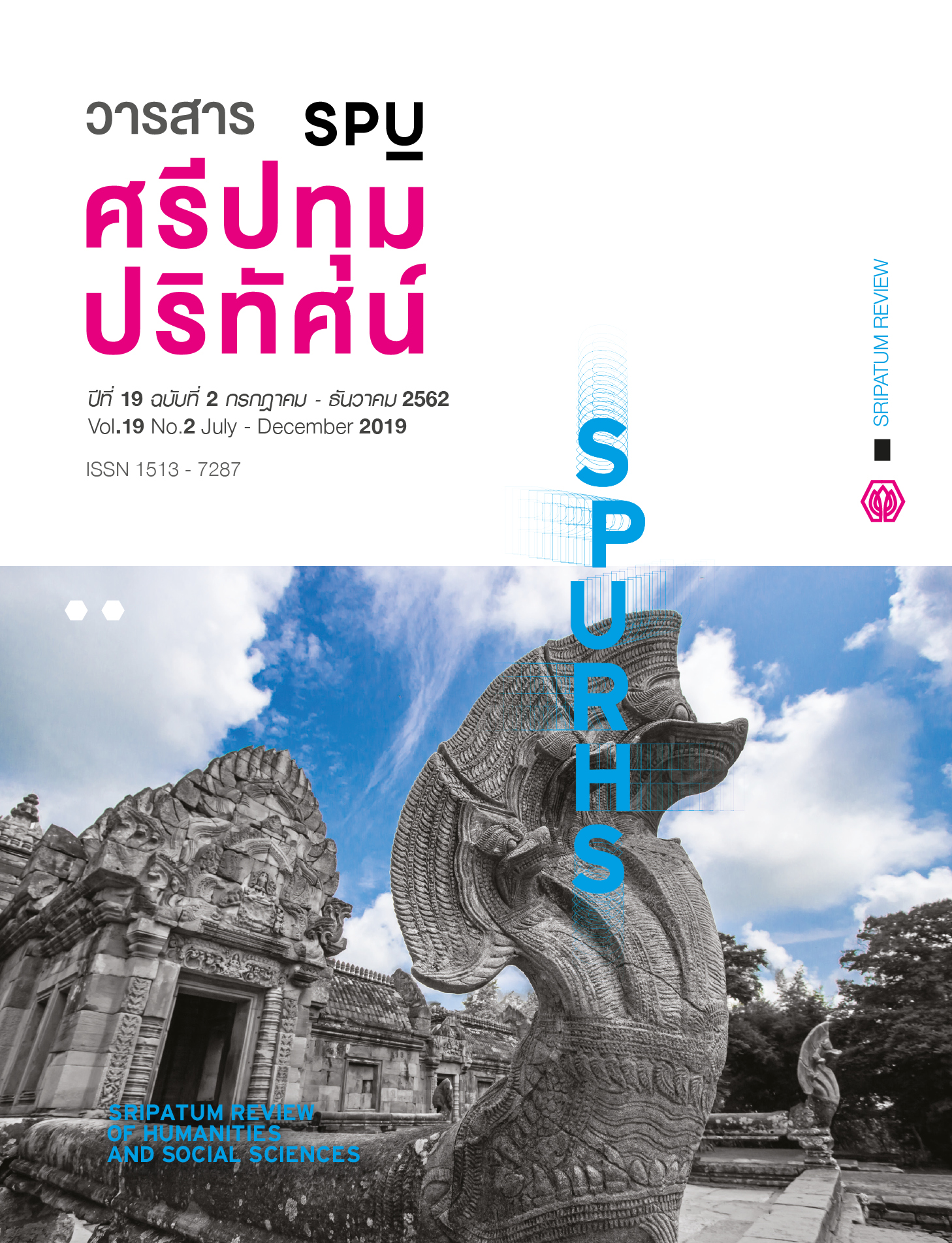ยุทธศาสตร์การพัฒนาสถาบันการศึกษาชั้นสูงของกองทัพบกสู่การเป็นองค์กรแห่งการเรียนรู้ในยุคประเทศไทย 4.0 (THE STRATEGIES OF DEVELOPING HIGH CLASS EDUCATIONAL INSTITUTES OF THE ROYAL THAI ARMY TOWARDS LEARNING ORGANIZATIONS IN THE ERA OF THAILAND 4.0)
Main Article Content
Abstract
The objectives of this mixed-method research were (1) to study the states and problems of developing higher education institutions of the Royal Thai Army towards being learning organizations in the Thailand 4.0 era; (2) to analyze the components of learning organization for higher education institutions of the Royal Thai Army in the Thailand 4.0 era; and (3) to propose the strategies for developing higher education institutions of the Royal Thai Army towards being learning organizations in the Thailand 4.0 era. For quantitative research, the research population comprised 390 staff members from higher education institutions of the Royal Thai Army (Command and General Staff College and Army War College). For qualitative research, the key research informants were seven high-rank executive officers (Director-General of the Department of Army Education, high-rank executive officers of the Command and General Staff College and Army War College, and academic staff members) and 20 staff members of the Command and General Staff College and Army War College. The research instruments comprised a questionnaire, an in-depth interview form, and a focus group discussion note taking form. Qualitative data were analyzed with content analysis; while quantitative data were analyzed with descriptive statistics and second order confirmatory factor analysis. The findings indicated that strategies for developing higher education institutions of the Royal Thai Army towards being learning organizations in the Thailand 4.0 era were divided into two levels consisting of (1) five policy strategies and (2) nine operational strategies.
Article Details
1. กองบรรณาธิการสงวนสิทธิ์ในการพิจารณาและตัดสินการตีพิมพ์บทความในวารสาร
2. บทความทุกเรื่องจะได้รับการตรวจสอบทางวิชาการโดยผู้ทรงคุณวุฒิ แต่ข้อความและเนื้อหาในบทความที่ตีพิมพ์เป็นความรับผิดชอบของผู้เขียนแต่เพียงผู้เดียว มิใช่ความคิดเห็นและความรับผิดชอบของมหาวิทยาลัยศรีปทุม
3. การคัดลอกอ้างอิงต้องดำเนินการตามการปฏิบัติในหมู่นักวิชาการโดยทั่วไป และสอดคล้องกับกฎหมายที่เกี่ยวข้อง
References
Chansuk, N. (2013).Model and development strategy as a learning organization of nursing colleges. Thesis of the Degree of Doctor of Philosophy. Bangkok: Chulalongkorn University. (in Thai)
Creswell, J. W. (2005). Educational Research: Planning, Conducting, and Evaluating Quantitative and Qualitative Research. 2nd Ed. Upper Saddle River, New Jersey: Pearson Education.
Hair, J.F., Anderson, R.E., Tatham, R.L., & Black, W. C. (1998). Multivariate data analysis. 5th ed. Upper Saddle River, NJ: Prentice Hall.
Jannoi, P. (2017). Special article: Education 4.0 [Online]. Retrieved March 12, 2017, from: https://www. Kroobannok.com. (in Thai)
Ketkaew, A. (2018). Thailand policy 4.0. Journal of Public Relations Department, 24 (252), 6-8
Kongsompong, A. (2018). Army Motto 2018. The Army Journal, 28 (6), 3-4. (in Thai)
Ministry of Defense. (2012). Military Civil Service Commission Order. Bangkok: Ministry of Defense. (in Thai)
Ministry of Defense. (2013).Army command in the direction of government regulation. Bangkok: Ministry of Defense. (in Thai)
National Strategy Committee. (2017). Vision and framework for national development according to the national strategy for 20 years. Bangkok: National Economic and Social Development Council. (Copied documents) (in Thai)
Senge,P. (1994). The Fifth Discipline Field book. New York: Currency Doubleday.
Srisombat, B. (2017). Development of the Army Staff School to become the leading military educational institution in Asia. Senathipat Journal, 60 (2), 50-62. (in Thai)


